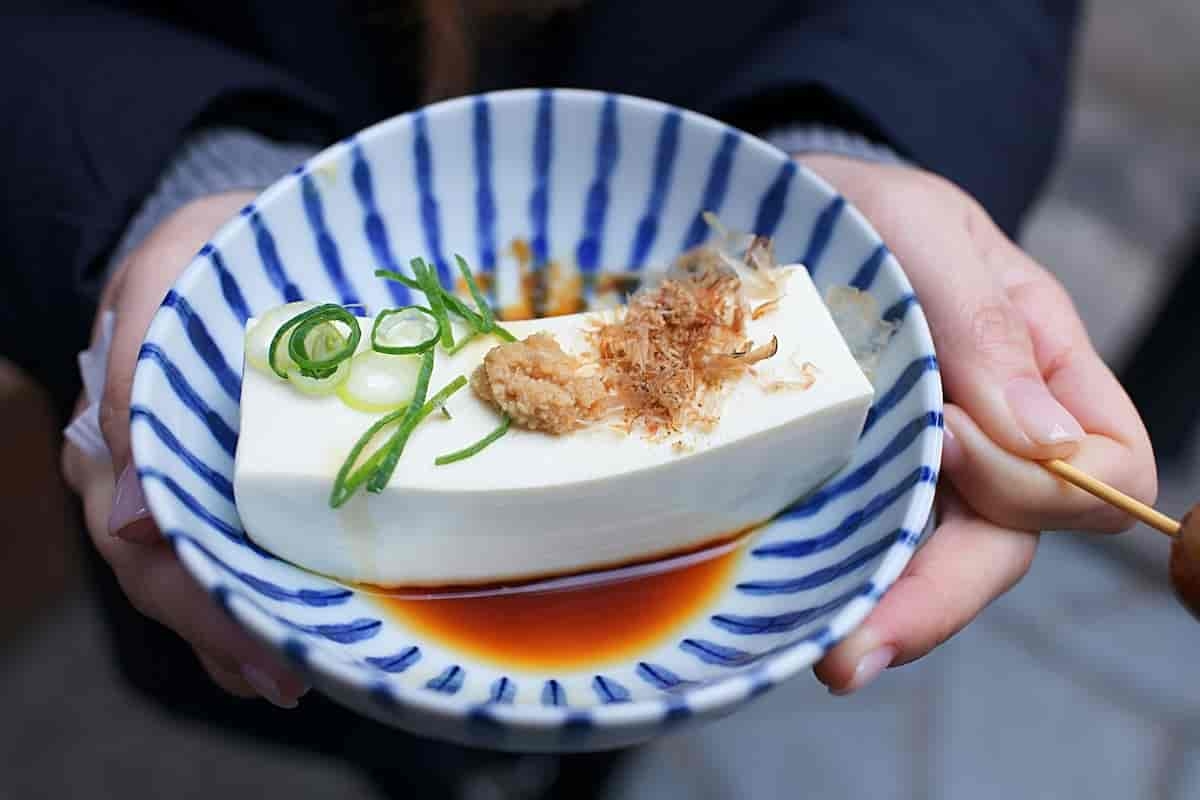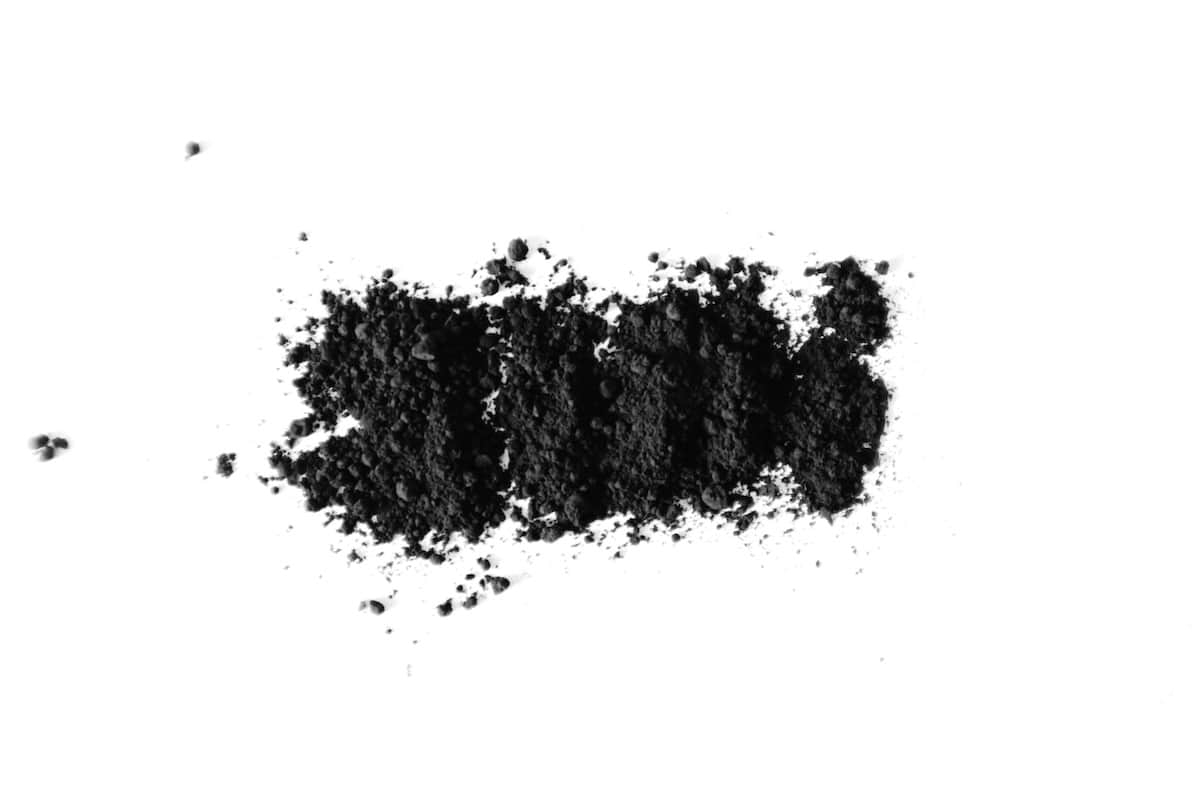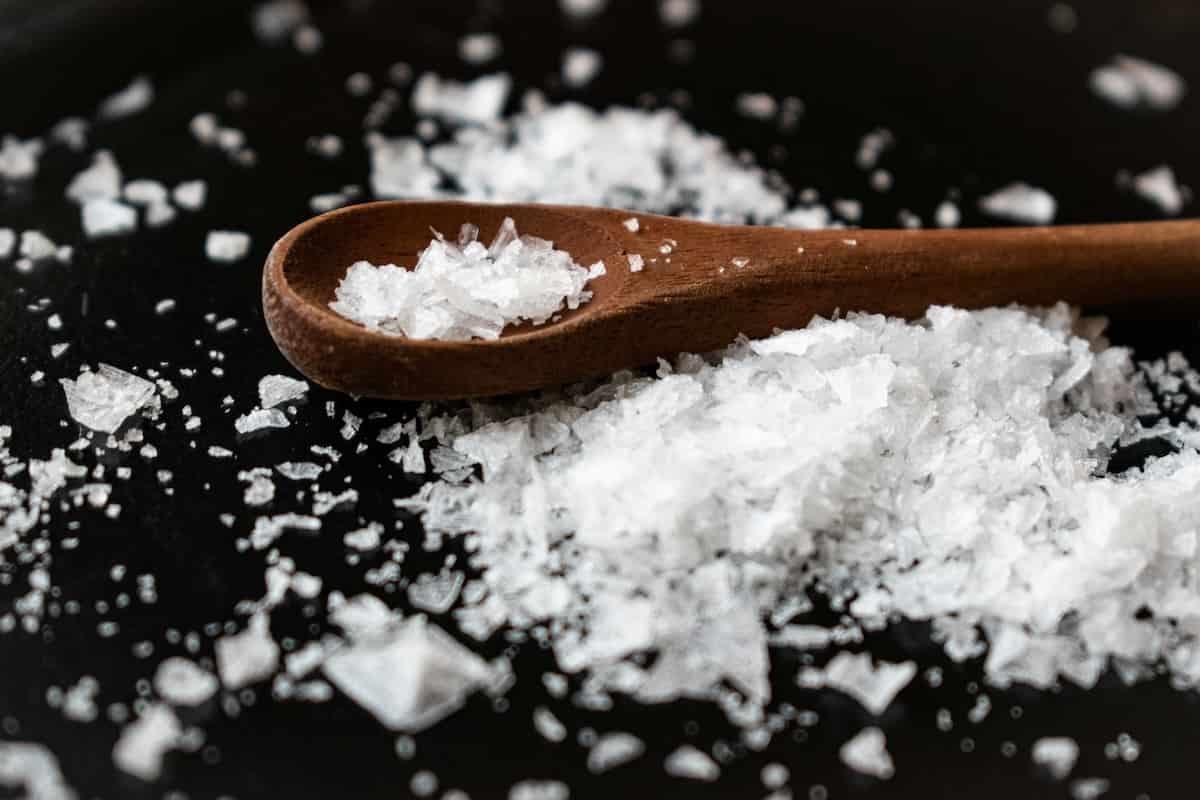Last update: June 27, 2025
6 minute read
Does Soda Give You Bad Breath?
Discover if your soda habit might be behind your bad breath and learn potent nutrition-based strategies to keep your mouth fresh.

By Derick Rodriguez, Associate Editor
Edited by Yerain Abreu, M.S.

Ever noticed how quickly fresh breath turns to questionable odors after sipping your favorite soda? You're not imagining things: sugary, fizzy beverages create a prime environment in your mouth for odor-causing bacteria to thrive.
Beyond sodas, your breath might also be signaling nutritional gaps—particularly missing vitamins and minerals crucial for oral health. Fortunately, including targeted nutritional support like a high-quality multivitamin supplement can significantly bridge these dietary shortfalls, paving the way to sustainable fresh breath.
Key takeaways
- Soda and other carbonated beverages increase acidity and bacteria growth in your mouth, contributing to bad breath
- Nutritional deficiencies, especially in essential vitamins and minerals, can make breath worse
- Natural supplements like zinc, probiotics, and vitamin C may effectively combat halitosis
Understanding the link between soda consumption and bad breath
Carbonated drinks—especially sugary sodas—are notorious culprits behind that funky breath you’re trying to avoid. The acid that gives soda its fizz can lower the pH of your mouth, creating an environment favorable to bacterial growth (and not the friendly bacteria kind).
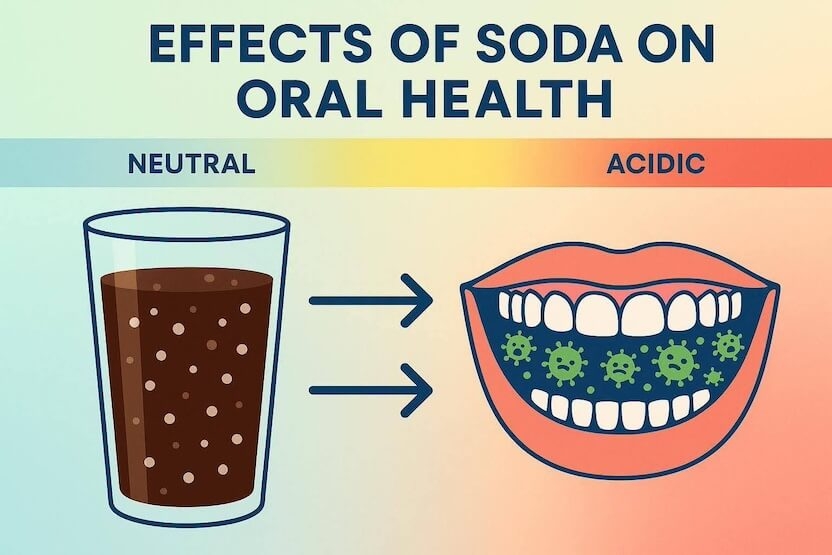
According to research from Primary Dental, sugary sodas and energy drinks offer bacteria exactly the sugar-laden environment they thrive in, leading directly to more noticeable bad breath. Even drier mouths due to acidic carbonation contribute to bacterial overgrowth.
Sparkling water and soda are more acidic than still water, and this increased acidity can lower the pH of your mouth and create a breeding ground for odor-causing bacteria.
The effect of soda on oral health
Ever wonder why soda leaves your mouth feeling a bit funky? Sunbury Dental House highlights that acidity in fizzy drinks can dry your mouth, letting bacteria linger and multiply. With less saliva around to wash bacteria away, your breath quickly turns stale.
The fizz in sodas can even cause burping, bringing unpleasant stomach odors straight to your mouth. Not exactly the best news when you're heading into an important meeting or hanging out with friends (awkward, much?).
Beverage Type | Effect on Breath |
|---|---|
Sugary Sodas | Increased bacterial growth, acidic conditions |
Sparkling Water | Lower oral pH and increased acidity |
Energy Drinks | High sugar, ideal for bacteria growth |
Additionally, the acid and sugar in sodas encourage the growth of bacteria that produce volatile sulfur compounds (VSCs), the prime chemicals behind smelly breath.
Nutritional deficiencies and their role in halitosis
Bad breath isn't always just the soda itself; sometimes it's what’s missing from your diet. Nutritional deficiencies often leave your body—and mouth—struggling.
For example, vitamin deficiencies like vitamin C and zinc have been linked to increased oral bacteria and unpleasant breath.
Certain foods and drinks—including coffee, alcohol, and soda—can taint breath for hours, and if your oral care is dialed in, nutrition is often the next place to look.
VitaRx Tip
Certain drinks, especially coffee, alcohol, and carbonated beverages, are major players in the development of bad breath.
Nutritional gaps can create a perfect environment for bacteria to flourish, turning your breath from fresh to third-date disaster real quick.
Effective nutritional supplements for combating bad breath
Here’s the good news: Supplements can bridge nutritional gaps and improve your oral microbiome.
Effective natural supplements include:
- Zinc: Helps neutralize sulfur compounds that cause unpleasant odors.
- Probiotics: Introduces good bacteria that crowd out foul-smelling culprits.
- Vitamin C: Improves gum health and fights bacteria formation.
I’ve personally found these supplements to be absolute game-changers, delivering fresh breath and improving overall oral health (trust me, your coworkers will thank you).
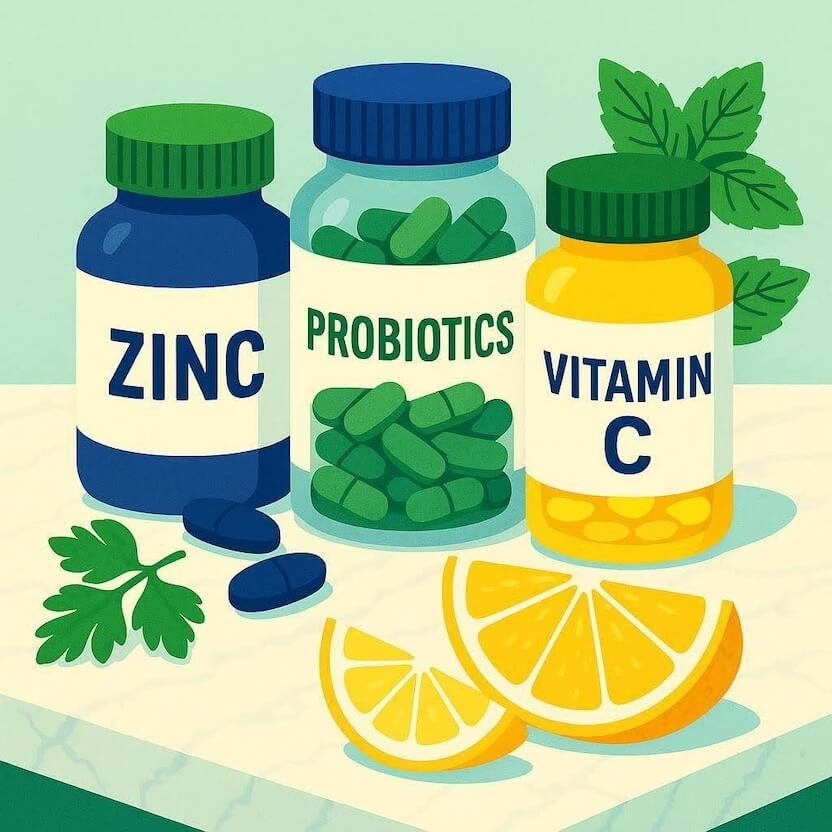
Practical tips for maintaining fresh breath
Feeling overwhelmed? Don’t be. Maintaining fresh breath is simpler than you might think.
Here’s the game plan:
- Hydrate regularly: Drinking water promotes saliva production, naturally cleansing bacteria from your mouth. Water is the best beverage to keep your mouth fresh and help wash away lingering food particles and bacteria.
- Minimize soda intake: Choose fresh water, tea, or sugar-free options whenever possible, or at least rinse your mouth with water after drinking soda.
- Improve your oral care: Brush your teeth and tongue at least twice daily to eliminate lingering nasty bacteria. Tongue brushing is key for fresh breath.
- Nutrition first: A diet rich in fruits, veggies, lean protein, and whole foods can profoundly impact oral freshness.
Make sure to brush properly
Brushing your mouth and your tongue is one of the best ways to restore fresh breath after it’s been tainted by food or drinks.
Still wondering if these tweaks are worth implementing? I promise, integrating these habits is far simpler than dealing with chronically bad breath.
Is investing in supplements really worth it?
Absolutely. Effective supplements aren’t a luxury—they’re a strategic investment in long-term wellness, oral hygiene, and even confidence. I've seen tangible results not just personally, but also from countless community members I've guided on their breath-freshening journeys.
Frequently asked questions (FAQ)
Here are some of the most frequently asked questions about bad breath from soda.
Final thoughts
While cracking open a soda might seem refreshing in the moment, the lingering effects on your breath can leave you with more than just a bad taste in your mouth.
By understanding the hidden link between soda intake, nutritional deficiencies, and persistent bad breath, you can make better-informed choices for your oral hygiene and overall wellness.
Simple, effective interventions—like reducing soda consumption, staying hydrated, and including essential nutrients like zinc, vitamin C, and probiotics—can dramatically elevate your breath freshness and confidence. So, consider: what's the next small step you'll take toward a fresher, healthier smile?
Sources and references
Editor

Derick Rodriguez
Derick Rodriguez focuses on editing health and wellness-related content. With over half a decade of experience in the digital realm, Derick has developed a unique skill set that bridges the gap between complex health concepts and accessible, user-friendly communication. His approach is deeply rooted in leveraging personal experiences and insights to illuminate the nuances of health and wellness topics, making them more approachable and empowering readers with knowledge and confidence.
Editor

Yerain Abreu
Yerain Abreu is a content strategist with over seven years of experience. He earned a Master's degree in digital marketing from Zicklin School of Business. He focuses on medical and health-related content, working with top healthcare professionals to ensure content is engaging and reliable.
At VitaRx, we're not just passionate about our work — we take immense pride in it. Our dedicated team of writers diligently follows strict editorial standards, ensuring that every piece of content we publish is accurate, current, and highly valuable. We don't just strive for quality; we aim for excellence.
Related posts
While you're at it, here are some other relevant articles you might be interested in.

Get your personalized vitamin recommendations in less than
5 minutes.
Get your personalized vitamin recommendations in less than
5 minutes.




